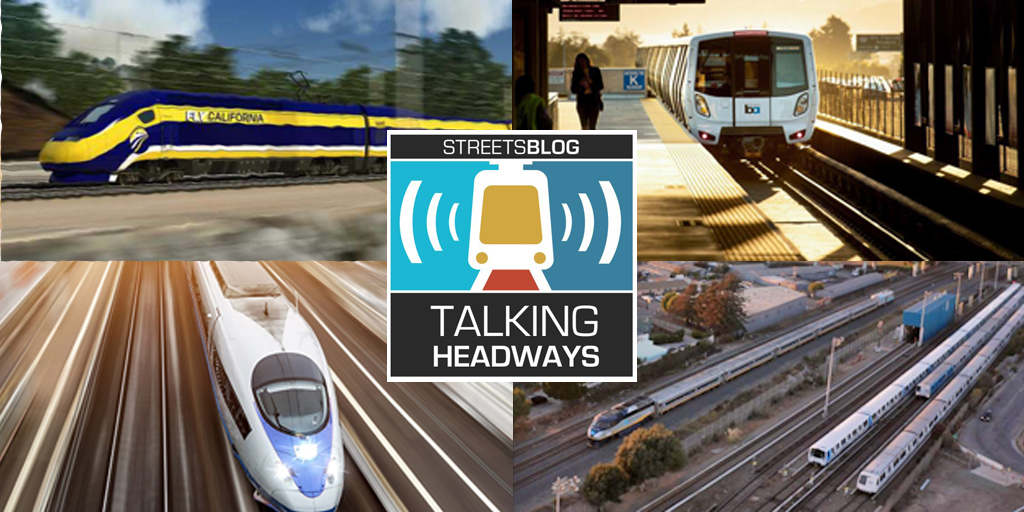This week, we’re joined by transit expert and former general manager for three transit systems Ron Kilcoyne, who talks about the importance of running frequent transit service to attract riders and how agencies in the Bay Area are underserving the population.
It's partially based on his recent piece for Streetsblog SF.
You know the drill: if you prefer to read, check out the full transcript here. If you want an excerpt, just scroll down below the media player.
Ron Kilcoyne: People that tend to be critical of transit say, "Well, we need to 'right size' our service levels." And usually they mean, "Cut service" and they’re referring to the fact, "Well, we don’t have as many commuters commuting in, so we need fewer peak-hours trips." The thing is what we need to have what Montreal or any of these Canadian cities have, a high level of service all day long, seven days a week that’s accommodating all trip purposes.
During the pandemic, you heard people talk about focussing more on essential workers who weren’t working 9-to-5, which is all true. But probably one of the things that influenced me in my career was that before I even started working at AC Transit, I lived in San Francisco. Muni was going through their first total restructuring of service and you know, as a transit geek, I made sure I went to every meeting and started talking with the planners. Things that stood out to me was a slide that said 70 percent of the trips in San Francisco are not to downtown. And 77 percent of the trips in San Francisco are not work trips.
And this was back in the late-1970s. And that’s always sort of stuck with me that we need to focus not just on work trips to downtowns, but on all trips in the region. We need to build multi-destinational networks that provide service all the time. Now, bear in mind I don’t want this to be taken as a critique of the transit systems that exist in the Bay Area because from that standpoint, as far as the amount of service that transit agencies are provided is based on the resources they have. So I want to make it clear: I don’t want people to come away thinking that I’m saying that the Bay Area systems are doing a crappy job because they don’t provide the same level of service as Toronto or that they don’t have the resources to do it. They can’t.
If I were managing any one of these systems, I might have figured out some things or another, but without additional dollars, I would probably not be able to put any more service on the road than what they are. So this is not intended to be a critique of the transit agencies that they’re somehow hoarding resources and not putting it out in service. You know, they’re putting out what they can put out.
Jeff Wood: I mean it’s a critique, but it’s a critique of politics. I mean, there was just a Mercury News piece about a survey that was done on people’s feelings about a new ballot measure in the Bay Area. And people were still very supportive, but it wasn’t as high as it was before. Because California is so strange in the way that we do votes for transportation. We have to have two-thirds votes for things. So if you’re not getting 66 to 70 percent of the vote, then it’s really hard to pass stuff.
Basically there was a lot of people saying like, "Oh, they have enough money," and I think that’s a misunderstanding of how we get back to the core of providing people service that gets higher ridership. Right?
Cutting service has never led to higher ridership. And so we need that resource. We can pour more resources into transportation and transit because the road system has tons of resources that politicians pour into that system continuously. And nobody’s ever saying, "You need to 'right size' the road system." So, you know, it’s funny that we have this kind of bifurcated discussion about transportation when it’s all a network, right? It’s all connected.
Ron Kilcoyne: That’s a key thing. It’s a network. And that’s probably the other piece where maybe we could do it, we can do a better job is working seamlessly as a network. You know, I do see some things that I find troubling as far as trying to better coordinate service. I do think there’s some better integration. It’s hard work. And there is some probably work on fares, you know, where and the Metropolitan Transportation Commission trying to come up with an integrated fare structure, integrated way finding as well as to come up with a way to better integrate services.
But they’re also, when you look at the regional map, there are some gaps and, again, that gets back to the politics because before you fill any gap, you need the resources to provide that service.






